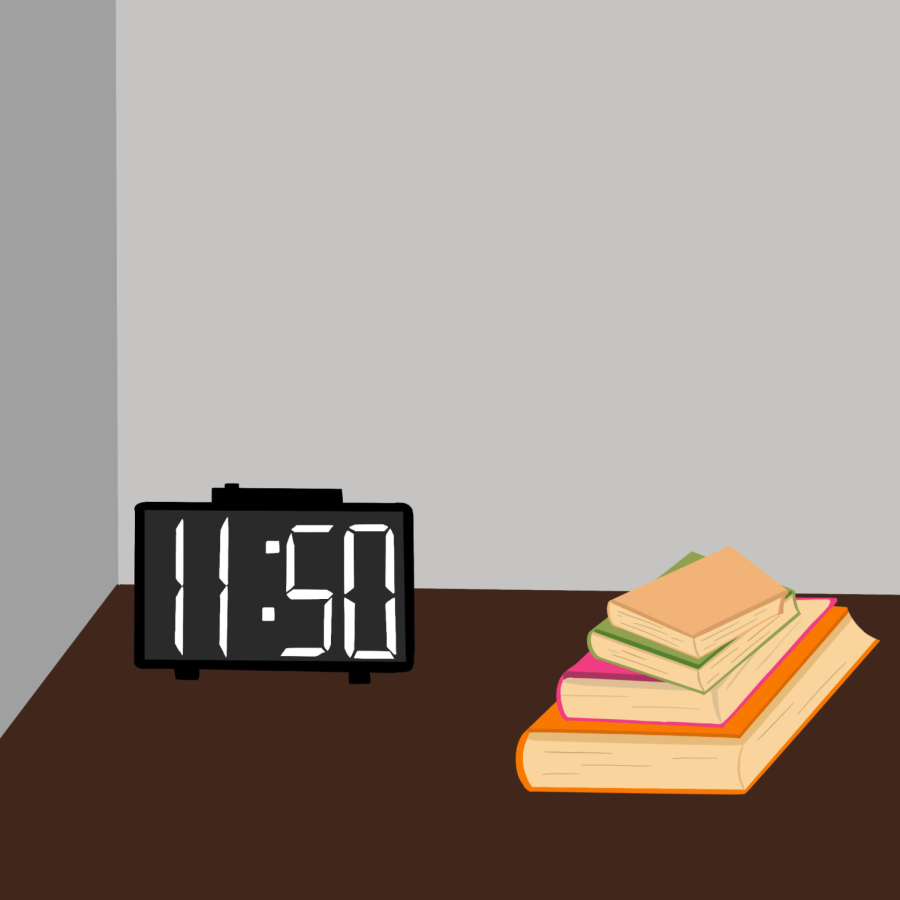The persistent threat of procrastination
Why it happens and how to put a stop to it
October 19, 2021
As students begin facing interminable to-do lists and looming deadlines, procrastination is a persistent threat that is always hanging over us. A stubborn procrastination habit is enough to warrant many sleepless nights and stressful days. Yet, nipping this issue in the bud is easier said than done. It takes much more than simply telling yourself to get some work done. In order to combat the issue, it’s first important to understand the psychology behind it.
Oftentimes, procrastination is a result of other underlying sentiments. For example, a student’s inability to focus on working on an assignment could be due to a low level of confidence or an irrational tendency towards perfectionism. Alternatively, it could be a struggle between hedonistic pleasure and eudemonic pleasure, as they must make a choice between the instant gratification of blowing off work to engage in more entertaining activities and the long-term, deep gratification of committing to one’s goals. At any rate, solving one’s issues with procrastination begins with understanding oneself.
Procrastinators are often divided into three distinct groups: thrill-seekers, avoiders and indecisives. Thrill-seeking procrastinators relish in the adrenaline high stemming from working under pressure at the last minute. Avoiders tend to steer clear from the task at hand in order to avoid being judged upon it. Lastly, indecisive procrastinators are characterized by being perfectionists to the extent that no work is advanced upon.
Keeping in mind the psychology of procrastination and one’s own distinct procrastinative personality, there are many techniques that have been found to be effective when it comes to combating this habit. One tip is to commit to the task as soon as you have it assigned, even if only with the smallest action. For example, when getting a paper assigned, an action as small as a five minute interval of sketching out an organizational outline would significantly break the ice and get your momentum moving on that task.
Another technique is to divide an overwhelming task into smaller, more manageable segments. This is often done with tasks such as large projects or upcoming exams. Additionally, it is significantly helpful to remove distractions from your line of vision in order to diminish any temptations to engage in other activities instead of the task at hand. While struggling with breaking these habits, you also have to be mindful of regulating the emotions that are causing the habits in the first place. One way to do so is to avoid creating a cycle of guilt surrounding the procrastination, since feelings of guilt will only further impede you from focusing on future tasks. Another way to combat procrastination is by consistently rewarding yourself for pushing through and successfully completing tasks.
Whether we like it or not, procrastination is a factor embedded into our day-to-day lives, so the goal is not to eliminate it, but to learn to work around it and persevere: one step at a time.









Eric Franklin • Mar 3, 2022 at 3:01 pm
You know it’s good when you have to look up definitions of words while reading. “Eudemonic” and “hedonistic” tripped me up.
Very relatable and accurate information.
Eric Franklin • Mar 3, 2022 at 2:55 pm
Wow, amazing article. Would love to see more from this author.